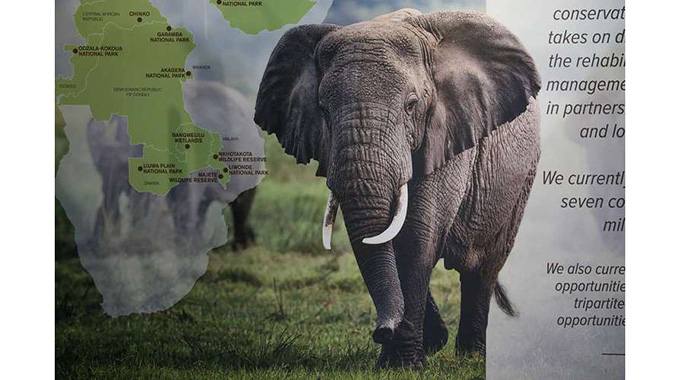
John Ditima
Herald Correspondent
About 10 months from now, the world is set to converge either physically or virtually in Costa Rica at the 19th meeting of the Conference of the Parties to the Convention on International Trade in Endangered Species of Wild Fauna and Flora (CITES CoP19).
CITES is an international agreement between governments.
Its aim is to ensure that international trade in specimens of wild animals and plants does not threaten the survival of the species.
Southern African Development Community (SADC) member states who are also parties to CITES include South Africa, Zimbabwe, Botswana, Democratic Republic of Congo, Seychelles, Zambia, Namibia, Mozambique, Angola, Malawi and Lesotho.
SADC will yet again seek the lifting of the ban in ivory trade imposed in 1989 and other issues at conference.
In preparation of this conference, SADC is expected to come up with a position that is in sync with the region’s experience and expectations through consultation among member states.
Be that is it may, even if SADC was to come up with a “strong position” and seek a review of the ban on ivory trade, will the “elite” members with little or no knowledge of wildlife conservation listen to the regional body this time?
As far as history remembers, SADC has been lobbying for the review of the ban on ivory trade for over three decades and this has been falling on deaf ears.
In light of trends since the imposition of the ban on ivory trade, it seems it’s a shear waste of time for SADC Ministers responsible for Tourism and Environment to meet to deliberate and eventually present to CITES CoP19 interventions or proposals to deal with the ballooning elephant population in the region which has escalated challenges such as human-wild conflict and environmental degradation.
The SADC position is there and is known: SADC should be allowed to trade freely in wildlife species and related products.
This is the message the bloc has been taking to CITES over the years and it has been rejected by countries that permitted the extinction of dinosaurs under their watch.
Now the question is, what makes SADC believe that CITES will listen to it at this time? What has changed?
If history is to repeat itself as it always does, SADC’s position will be rejected again despite the bloc having spent its meagre resources holding preparatory meetings and eventually send representatives to CITES CoP19 only to come back with the answer we all know.
It is against this background that SADC should come up with a “bold decision” or resolution that is; pulling out of CITES if its position is not adopted at CITES CoP19.
CITES was constituted to regulate trade in endangered species, but if there is no trade then CITES is not serving its purpose.
The fact that SADC has managed to have a ballooning population of elephants, is a clear testimony that the region does not require lectures from anyone on how to conserve the wildlife; it is an expect.
If anything, other countries, especially from Europe and the Americas, should come to the bloc for study tours and take notes on best wildlife conservation practices.
The region knows it all.
When the bloc pulls out of CITES it will be time now to implement policies or measures that augur well with the African experience and control the population of elephants and trade within the bloc or elsewhere where there is ready market.
The block should even go on to cull or slaughter the elephants and feed the meat to the citizens without hesitation or regret.
“We will consider among other options the possibility of culling. It is a scientific process that we will allow to take its course and we will be fully advised in terms of whether or not it is viable,” Zimbabwe’s Environment, Tourism and Hospitality Industry Minister, Mangaliso Ndlovu recently noted.
Botswana has somehow led the way in 2019 by lifting its five-year ban on elephant hunting citing “high levels of human-elephant conflict” amid criticism from the usual “culprits”.
Zimbabwe alone is sitting on a more than US$10 million ivory stockpile and has an elephant population of about 84 000, which is nearly double what it can cope with, according to the Zimbabwe Parks and Wildlife Authority.
